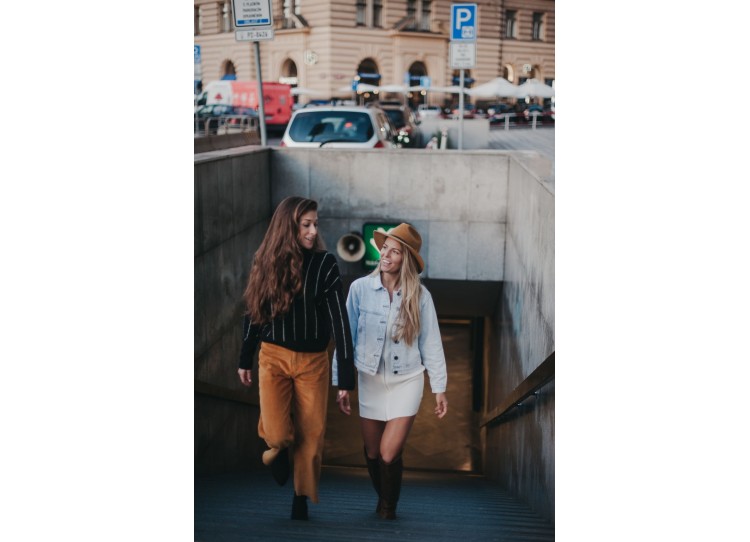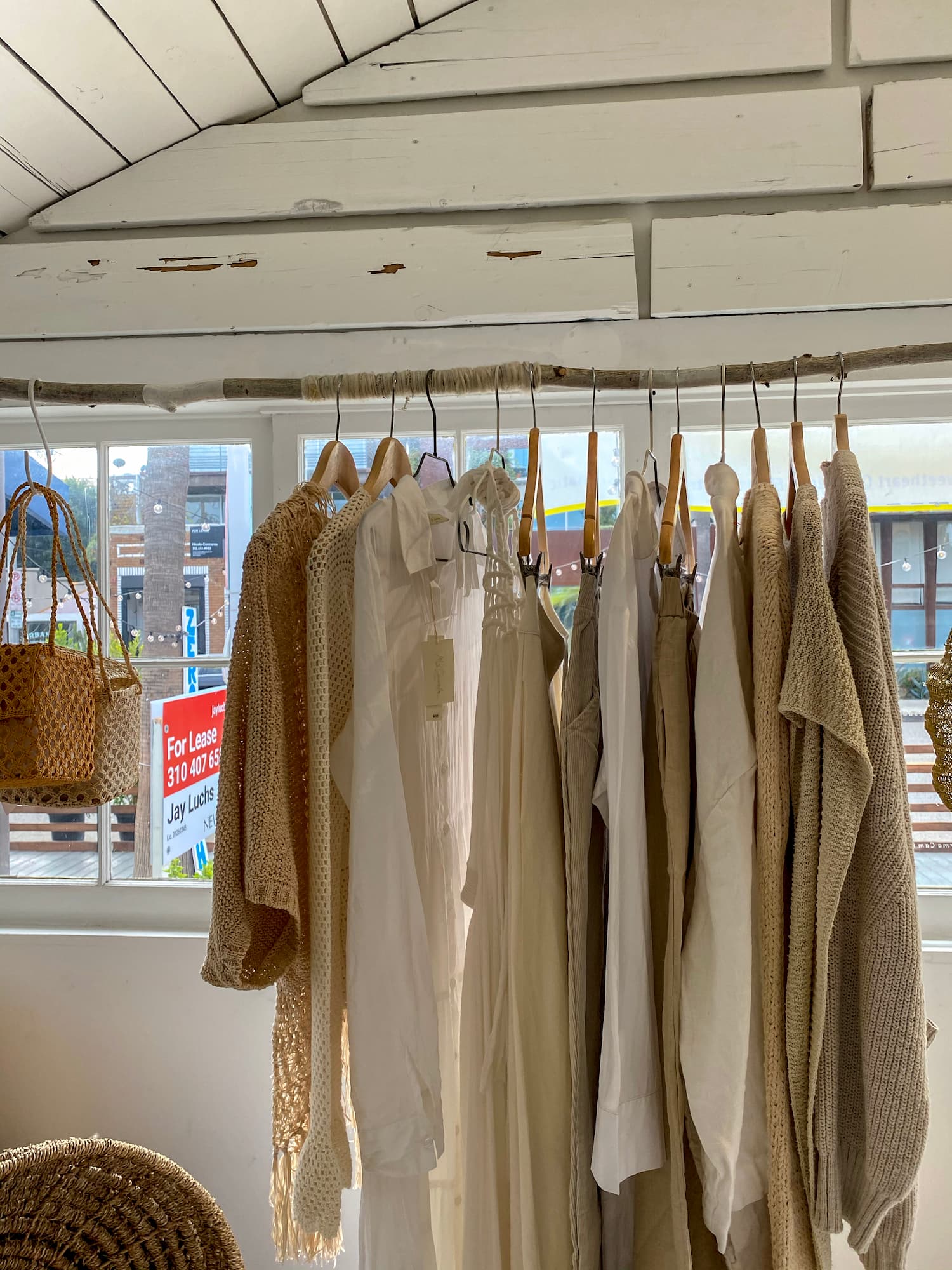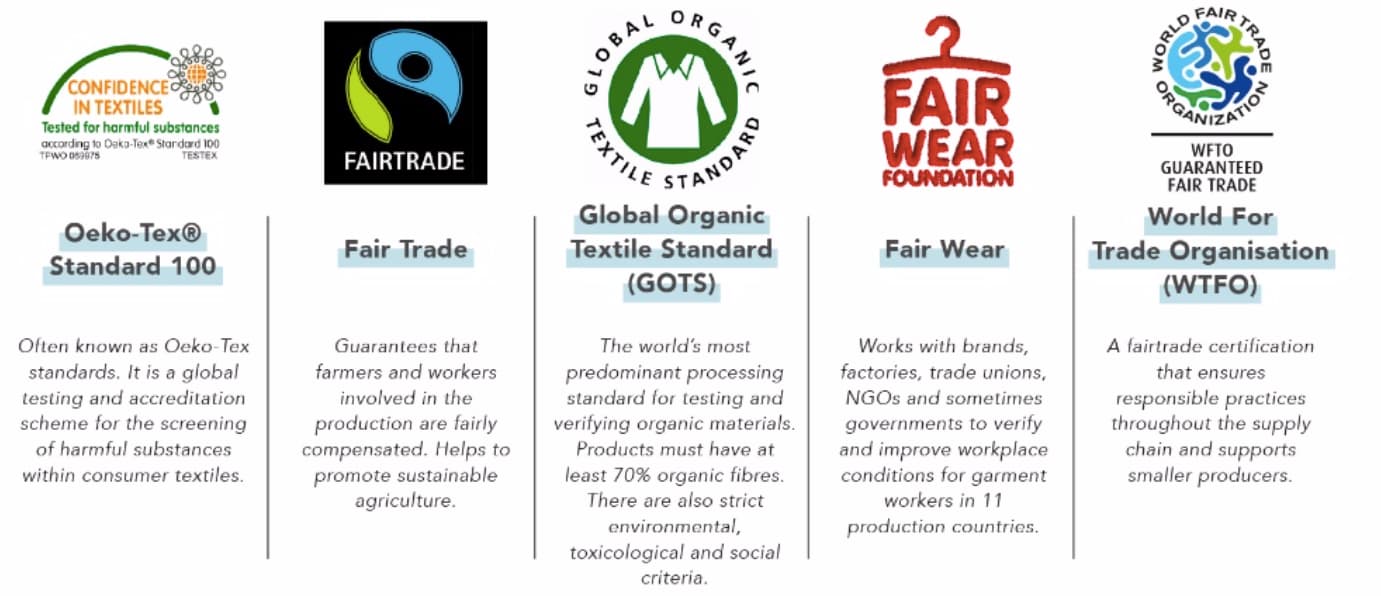Five Easy Steps to Shop More Consciously and Save Money

I know what you’re thinking: I stopped using plastic bags, I made the switch to bar soap, and I avoid plastic bottles like the plague; now I should change my shopping habits with clothes? Or maybe this isn’t you. Maybe you’re just starting out and want to make some ethical changes but don’t know where to begin, that’s ok , too. It’s been said enough times that we just need 100 people doing 1 thing right than 1 person doing 100 things right.
When I initially started thinking about being more conscious of my shopping habits, the first thing I thought was, “Yikes, shopping sustainably is SO expensive! How much do these pants cost?? WHATTT!!” But it took a little self experimentation (unknowingly) to discover that actually, paying that higher price tag pays off in the end.
I started shopping much less. I wasn’t having holes sewn up in my jeans or trying to “shave” off pills on my sweaters. I noticed my jeans surviving my daily long walks around the city and the soles of my boots less worn than the ones I paid 1/4 of the price for (that eventually had to be tossed). That one time purchase that felt like it broke the bank was actually saving me more money than the little purchases I was making almost monthly to “keep up with trends” or replace something that could no longer be worn.
So here are 5 easy steps to get you started.
(1) Create a Capsule Wardrobe
Let’s be honest: your wardrobe might be overflowing and your drawers can barely close, but you’re still wearing the same two pairs of pants on repeat and you can’t exactly remember the last time you changed your undershirt.
No problem!
Make the most of this! Think of your favorite pieces and how you feel when you wear them. Why are we always reaching for the same things? Because they’re comfortable, we look cute AF and we feel confident. When you select a few key pieces you’ll be surprised at the amount of outfits you can create from them and it will save your wallet from having to buy a new wardrobe every season.
(check back next week for the full blog post about creating a capsule wardrobe).

(2) Know Your Materials
That being said, you need to know what materials are made to last and which ones are not.
You’ve probably seen an infographic or at least read the title of an article stating the facts about the amount of harm the fashion industry inflicts on the environment yearly. It can be overwhelming and hard to know where to start, but learning to read the content labels of clothing with a better understanding is the first step! Here are the big culprits that you should avoid to save you money and help the environment:
regular cotton : Cotton not only requires a ton of water to grow (20,000 liters to just produce 1 kilogram of cotton) but also accounts for 16% of total insecticides world wide. A good alternative to regular cotton is organic cotton. 80% of organic cotton is grown with rain water and prevents the unnatural modification of lands to create new water sources. Organic cotton is also grown without man-made pesticides.
(Tencel is also a great alternative read more about Tencel here)
polyester: Polyester is the most used fabric in the fast fashion industry. It’s cheap and not designed for wear, making it the perfect material for disposable fashion. It’s a synthetic fabric made from oil based chemicals that don’t allow it to biodegrade which means it will stay in the earth for 1,000s of years .
Look for recycled polyester that can be made from plastic bottles or recycled clothing. Switching to a recycled version reduces energy consumption by 30% and water consumption by 90% !
Nylon which is found in abundance in swim wear and sports wear is a huge contributor to the plastic waste epidemic. Like polyester, nylon takes thousands of years to decompose and contributes to air and water pollution.
Look for recycled nylon in your clothing , this can save about 5.7 tons of CO2 equivalent emissions for every one ton of raw materials used.

(3) Watch Out For Green Washing
“Ethical” and “eco friendly” have become buzz words in the fashion industry. Many clothing brands are trying to jump on the bandwagon and make you feel less guilty for buying their products by displaying these phrases on their webpages. But do your research. Unless they have actual certified labels (GOTS, OEKO-TEX, Cruelty Free, PETA, for example) it’s likely that they’re just trying to use these trendy catch-phrases to market to you. You’ll be paying a higher price for items that aren’t really made to last.
(Check out our PETA certified boots)
(4) Stay Away from Fast Fashion Brands
You know who I’m talking about : the brands who have prices that seem too good to be true with new collections every two weeks and sales BELOW too good to be true prices.
Why are they so bad? They’re producing products that are meant to be disposed of in a short period of time. So while you may be getting an incredible steal at the moment, when you add up the amount of times you have to shop for that “incredible steal” during the year, it will far surpass the amount of a collection of sustainably made products. Fashion trends come and go as do the items of the brands who create their pieces. The next time you’re searching for the next season’s trends, check some ethically made fashion brands before visiting your shopping centers collection of stores. You’ll find something that can live in your closet for the next few years, not the next few weeks.
(5) Shop Local
As with all industries , when you shop local you are contributing to your community and to the people who live in your neighborhood. When you shop at small boutiques you’re able to learn about the brands they carry and the environmental impact of their production. Not only that, but you’re supporting the spread of more boutiques and uniquely curated stores to pop-up and diversify the shopping experience around you.

At Pacer, we’re happy to interact with our customers and learn about what they love seeing and what they want to see more of. We’re eager to learn about more sustainable brands and even more eager to support them! If there’s a brand you’d love to see at Pacer, comment below or send us a message :)

